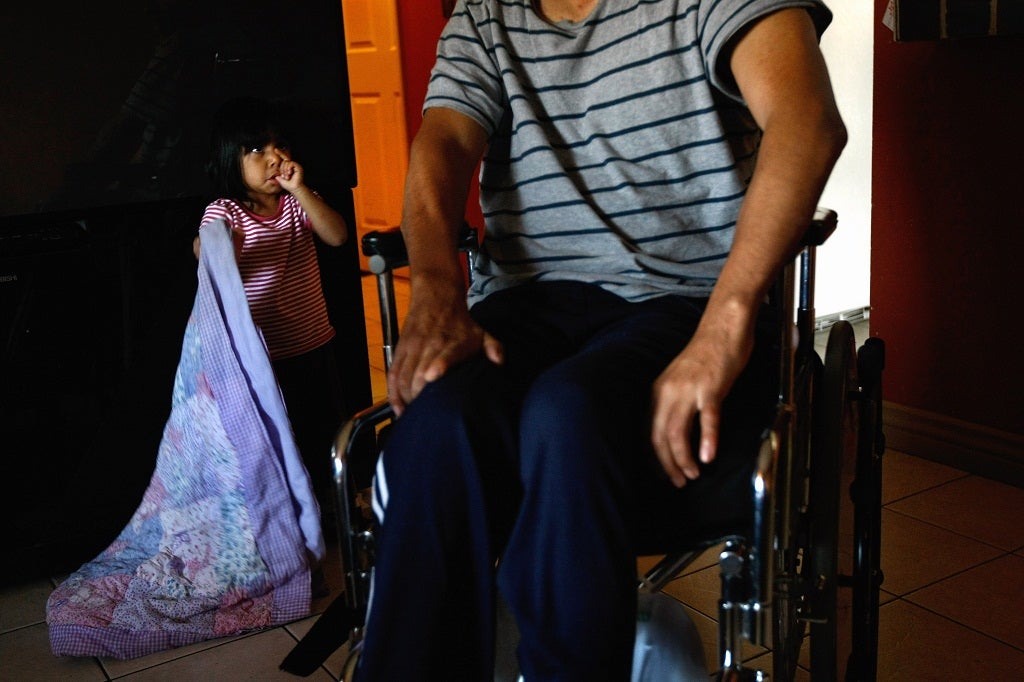Why did the BBC use real footage of disabled people being tortured in a trailer?
The original Panorama investigation was brave, honest, and crucial. How disappointing then to see such serious material replayed in a cheap advert


When I launched my Don’t Play me Pay me Campaign in 2008 it was in an effort to get an answer to one simple question. Why aren’t disabled people featured routinely in the media?
From ability-only advertising, to tearful actors accepting Academy awards for truthful portrayals of “cripping up”, the media seemed at time to have its own impairment when it came to representing diversity as anything other than traumatic tales of bravely coping pity figures.
Fast forward to Paralympic glory in 2012 and those 11 days which saw a seismic shift to positive representations of disability and you might be forgiven for thinking that there was little left to do in the sphere of equal representations.
Competitive sport brings winners clearly defined as first past the post, whereas a marathon race for civil rights can take a generation to come to fruition.
The truth is though that without television placing disabled people both in front and behind the camera routinely, people won’t accept anything other than the reality with which they’re faced – and that’s often one free of disabled people.
The box of delights which sits in every room in every home in every street of every town, city and village in the UK is a powerful one in making and breaking stereotypes. It can also save lives.
The power of TV
When the Panorama programme ethically and honestly told the story of a campaign of hatred and abuse waged against the learning-disabled residents of the private hospital Winterbourne View, the reaction and outrage sparked inquiries and widespread revulsion.
Very like the positive Paralympic fever the nation seemed united in support of disabled people and horrified and disgusted that those paid to care were prepared to use learning disabled patients as a “torture toy” for their own amusement.
Panorama did what Panorama does so very well. It told the truth through the use of a hidden camera and the words and actions of the abusers.
There was nothing more they needed to do. Awards and plaudits were well deserved and I felt a genuine love for the makers and contributors, and a lasting gratitude that the cuts facing us all had not palpably leaked through to news and current affairs. The viewing was harrowing but it was crucial. It had to be shown because without it nothing would change for the most disenfranchised people in society.
But on Sunday night, as I waited for the news, the devastating footage from Winterbourne View appeared again – and made me rage for a different reason.
The soft tones of Sophie Okenado began to tell a story of a man with the mental age of a 4 year old punched for sport. I wondered if it was to sell a new drama because what I was watching was filmed as a drama and it was edited like a drama. Then the footage of the Panorama documentary of Winterbourne View accompanied by the terrified screaming of a tortured man was thrown onto the screen.
Repulsive viewing
The horror of the agonised lives of those who endured all of the worst excesses of human cruelty was being replayed. Not as a trailer for a drama, but as an advert for the department of the BBC responsible for news and current affairs.
I tweeted my fury and received many back in return from people stating their own revulsion and how they’d had to turn it off. These people weren’t sensitive souls terrified of offence; they were all people who had totally embraced Panorama’s integrity for making the original documentary.
As a disability rights campaigner, I have to question why people are being utilised to promote a BBC department; how the decision to present torture like a drama fits with the BBC’s duty as a public broadcaster not to degrade disabled people in shop-window promotion; and why they didn’t use a journalist to tell the story as fact rather than an actress to perform the script, in a sensationalised retelling of reality as a drama.
I was crying and shouting as I left my message on the complaints line on Sunday night. That's embarrassing but true. I was much calmer when the BBC press office sent me their statement.
In that one trailer on Sunday night, the issue of positive representations of learning-disabled people - as narrators to their own experience rather than marketing tools to sell a corporate department - has never seemed further away.
The BBC’s statement said: ““We understand that the trails may be uncomfortable to watch for some of our audience. They are intended to reflect the wide range of hard-hitting current affairs that the BBC produces, which we recognise can be challenging. As a result, the trails have been carefully scheduled so that they aren’t shown at times when children are likely to be watching. Importantly, the victim’s family consented to the final trail being shown and they appreciate that these issues, whilst hard hitting, need to be addressed."
Join our commenting forum
Join thought-provoking conversations, follow other Independent readers and see their replies
Comments